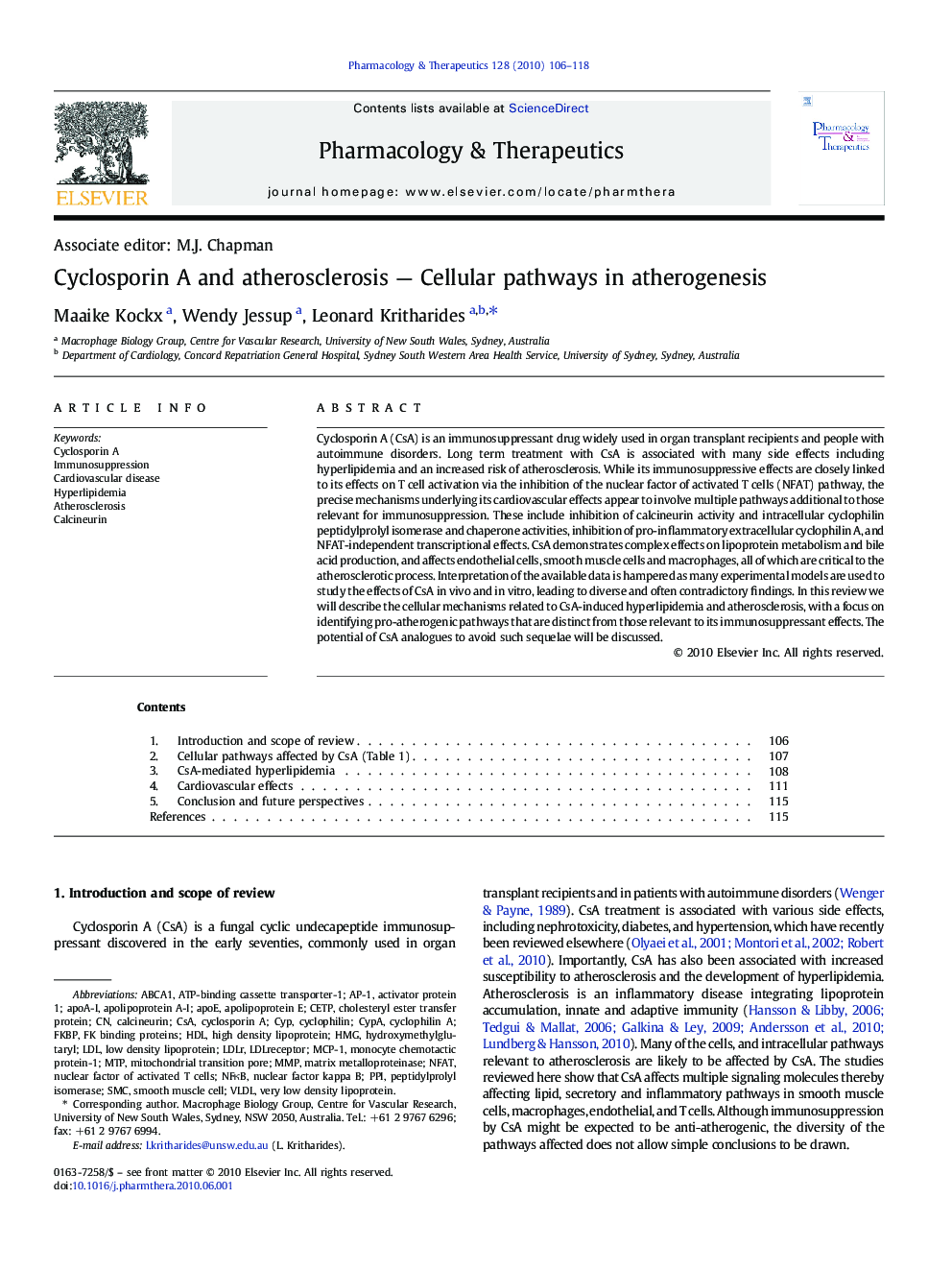| Article ID | Journal | Published Year | Pages | File Type |
|---|---|---|---|---|
| 2563501 | Pharmacology & Therapeutics | 2010 | 13 Pages |
Cyclosporin A (CsA) is an immunosuppressant drug widely used in organ transplant recipients and people with autoimmune disorders. Long term treatment with CsA is associated with many side effects including hyperlipidemia and an increased risk of atherosclerosis. While its immunosuppressive effects are closely linked to its effects on T cell activation via the inhibition of the nuclear factor of activated T cells (NFAT) pathway, the precise mechanisms underlying its cardiovascular effects appear to involve multiple pathways additional to those relevant for immunosuppression. These include inhibition of calcineurin activity and intracellular cyclophilin peptidylprolyl isomerase and chaperone activities, inhibition of pro-inflammatory extracellular cyclophilin A, and NFAT-independent transcriptional effects. CsA demonstrates complex effects on lipoprotein metabolism and bile acid production, and affects endothelial cells, smooth muscle cells and macrophages, all of which are critical to the atherosclerotic process. Interpretation of the available data is hampered as many experimental models are used to study the effects of CsA in vivo and in vitro, leading to diverse and often contradictory findings. In this review we will describe the cellular mechanisms related to CsA-induced hyperlipidemia and atherosclerosis, with a focus on identifying pro-atherogenic pathways that are distinct from those relevant to its immunosuppressant effects. The potential of CsA analogues to avoid such sequelae will be discussed.
